Description
Erlocip 150 mg Tablet is an anticancer medicine used for the treatment of non-small cell lung cancer. It is also used in a combination with gemcitabine to treat pancreatic cancer. This medicine is not recommended for use in patients less than 18 years of age.
Substitutes
List of substitutes for Erlocip 150 mg Tablet
Erlotib 150 mg Tablet
Intas Pharmaceuticals Ltd.
Erlonat 150 Tablet
Natco Pharma Ltd.
Tarceva 150 Tablet
Roche India
Side effects
Major & minor side effects for Erlocip 150 mg Tablet
Burning or tingling sensation
Cough
Diarrhea
Lower back or side pain
Rash
Chills and fever
Blurred vision
Convulsions (seizures)
Chest pain or discomfort
Acid or sour stomach
Hair loss
Loss of appetite
Uses of Erlocip 150 mg Tablet
What is it prescribed for?
Non-Small Cell Lung Cancer
This medicine is used for the treatment of non-small cell lung cancer, a disease characterized by symptoms such as a persistent cough, shortness of breath, weight loss, coughing up blood, etc.
Pancreatic Cancer
This medicine is used in a combination with gemcitabine for the treatment of pancreatic cancer.
Dosage
When not to use?
Allergy
This medicine is not recommended for use in patients with a known allergy to erlotinib or any other inactive ingredients present along with this medicine.
Warnings
Warnings for special population
Pregnancy
This medicine is not recommended for use in pregnant women unless absolutely necessary. All the risks and benefits should be discussed with the doctor before taking this medicine.
Breast-feeding
This medicine is not recommended for use in breastfeeding women unless absolutely necessary. All the risks and benefits should be discussed with the doctor before taking this medicine. Your doctor may advise you to discontinue breastfeeding or to discontinue the medicine based on your clinical condition.
General warnings
Anticoagulants
This medicine should be used with caution in patients receiving anticoagulants due to the increased risk of excessive bleeding. Close monitoring of INR, appropriate dose adjustments, or replacement with a suitable alternative may be necessary based on the clinical condition of the patient.
Hepatic Impairment
This medicine should be used with caution in patients suffering from liver diseases due to the increased risk of worsening of the patient’s condition. Close monitoring of liver function tests is necessary while receiving this medicine. Appropriate dose adjustments or replacement with a suitable alternative may be required based on the clinical condition.
Renal Impairment
This medicine should be used with caution in patients suffering from kidney diseases due to the increased risk of severe adverse effects. Close monitoring of kidney function, appropriate dose adjustments, or replacement with a suitable alternative may be required based on the clinical condition of the patient.
Gastrointestinal Perforations
This medicine should be used with extreme caution in patients suffering from gastrointestinal diseases due to the increased risk of gastrointestinal perforations. Report any unusual symptoms to the doctor immediately. Close monitoring of clinical condition or replacement with a suitable alternative may be necessary based on the clinical condition of the patient.
Dosage
Missed Dose
The missed dose should be taken as soon as possible. It is advisable to skip the missed dose if it is already time for your next scheduled dose. Do not use extra medicine to make up for the missed dose.
Overdose
Seek emergency medical treatment or contact the doctor in case of an overdose.
Interactions
All drugs interact differently for person to person. You should check all the possible interactions with your doctor before starting any medicine.
Interaction with Alcohol
Description
Interaction with alcohol is unknown. It is advisable to consult your doctor before consumption.
Instructions
Interaction with alcohol is unknown. It is advisable to consult your doctor before consumption.
Interaction with Medicine
Atazanavir
Ciprofloxacin
Carbamazepine
Clarithromycin
Lansoprazole
Pantoprazole
Fluvoxamine
Disease interactions
Gastrointestinal Diseases
This medicine should be used with extreme caution in patients suffering from gastrointestinal diseases such as peptic ulcer disease and diverticular disease due to the increased risk of worsening of the patient’s condition. Close monitoring of clinical condition, appropriate corrective measures, dose adjustments, or replacement with a suitable alternative may be necessary based on the clinical condition of the patient.
Eye disorder
This medicine should be used with extreme caution in patients suffering from eye diseases such as primary keratitis, ulcerative keratitis, conjunctivitis, etc. due to an increase in the risk of worsening of the patient’s condition. Report any unusual symptoms or worsening of eye symptoms to the doctor immediately. Close monitoring of clinical condition or replacement with a suitable alternative may be necessary based on the clinical condition of the patient.
Renal impairment
This medicine should be used with caution in patients with a history of kidney diseases due to the increased risk of severe adverse effects. Close monitoring of kidney function, appropriate dose adjustments, or replacement with a suitable alternative may be required in some cases based on the clinical condition of the patient.
Hepatic impairment
This medicine should be used with extreme caution in patients suffering from liver diseases due to the increased risk of worsening of the patient’s condition. Close monitoring of liver function is necessary while receiving this medicine. Appropriate dose adjustments or replacement with a suitable alternative may be required in some cases based on the clinical condition of the patient.
Food interactions
Consumption of grapefruit juice is not recommended during treatment with this medicine due to the increased risk of severe adverse effects such as nausea, vomiting, diarrhea, etc.
Lab interactions
Information not available.
This is not an exhaustive list of possible drug interactions. You should consult your doctor about all the possible interactions of the drugs you’re taking.
General Instructions
Take this medicine as instructed by the doctor. You are advised to take it on an empty stomach, at least 1 hour before or 2 hours after a meal. Do not take in larger or smaller amounts than advised/prescribed. Consult the doctor if you experience any undesirable side effects. Ensure that the treatment course is completed. Do not stop the use of this medicine without consulting your doctor.

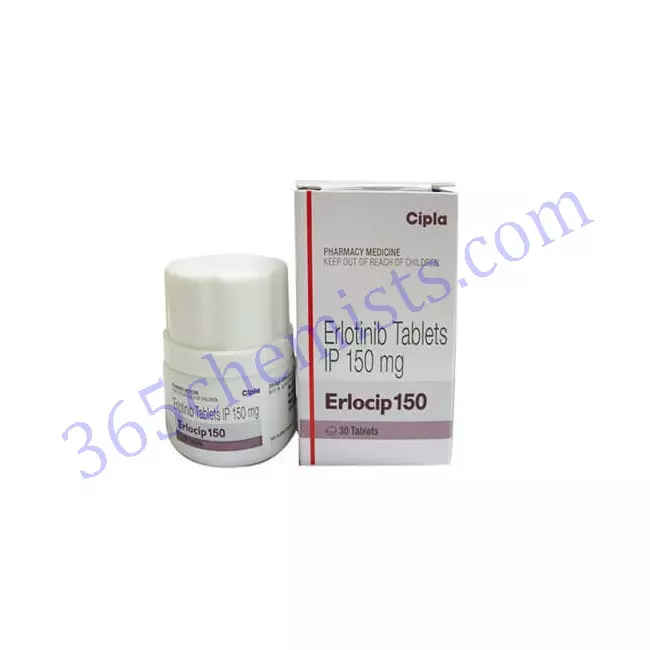

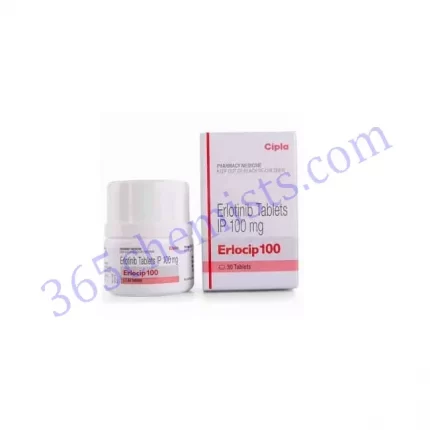

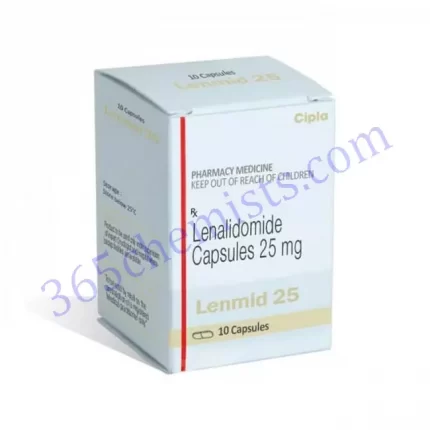
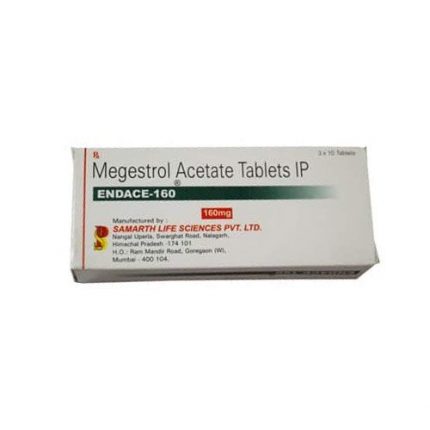

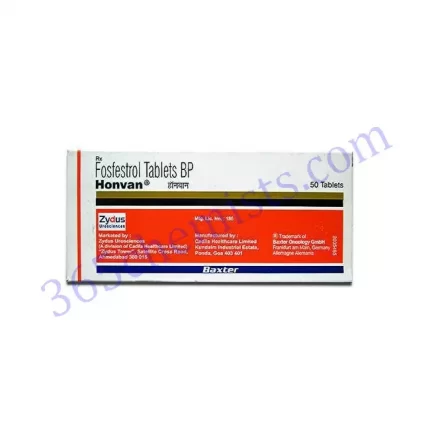
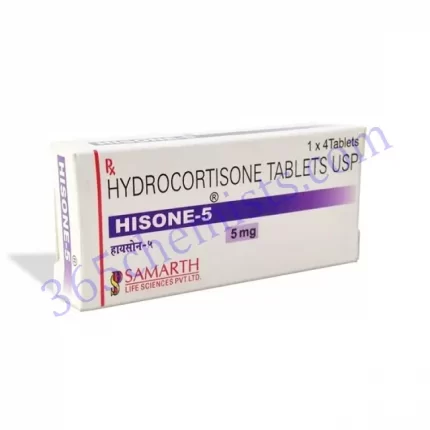
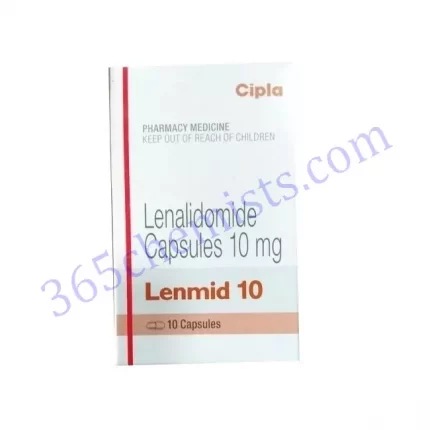

Reviews
There are no reviews yet.